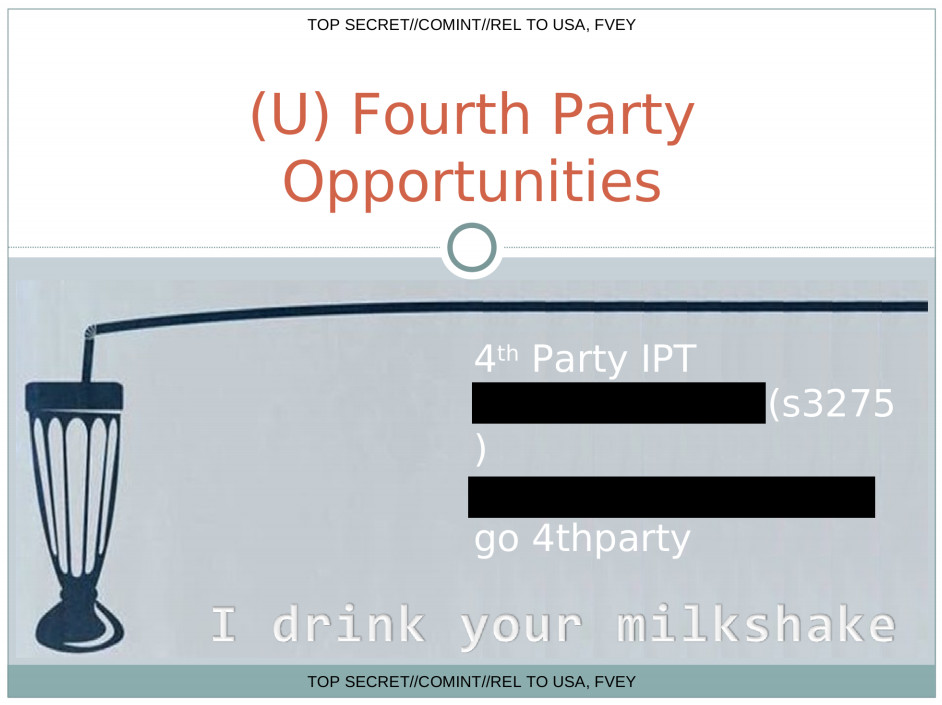New Snowden documents show that the NSA and its allies are laughing at the rest of the world
A team of
nine journalists including Jacob Appelbaum and Laura Poitras have just published another massive collection of classified records obtained by Edward Snowden. The trove of documents, published
on Der Spiegel, show that the National Security Agency and its
allies are methodically preparing for future wars carried out over the
internet. Der Spiegel reports that the intelligence agencies are working
towards the ability to infiltrate and disable computer networks — potentially
giving them the ability to disrupt critical utilities and other infrastructure.
And the NSA and GCHQ think they're so far ahead of everyone else, they're
laughing about it.
We already
know that the US is already capable of launching complex digital attacks that
can cause physical damage to its enemies. A computer virus known as Stuxnet,
discovered in 2010, was deployed as part of a joint operation between the US
and Israel that ravaged Iran's Natanz nuclear facility, destroying many of the
country's nuclear centrifuges. Since then, the NSA's top brass has boasted of newer and more powerful digital
weapons.
The NSA and
GCHQ are cracking jokes about pwning everyone
The new
documents presented by Der Spiegel show that NSA surveillance programs
are at the foundation of efforts to create sophisticated digital weapons. One
of the major themes from the new documents involves the ability of Five Eyes
intelligence agencies to exploit the methods of its adversaries — efforts to
"steal their tools, tradecraft, targets, and take." The NSA calls
this impressive capability "fourth party collection”
Fourth party
collection appears so successful that agents of the NSA and GCHQ have cracked
jokes about it in top secret slide decks. In an NSA presentation titled
"fourth party opportunities," the first slide references Daniel
Day-Lewis' infamous "I drink your milkshake" monologue from the 2007
film There Will Be Blood. In one instance, Der Spiegel reports,
an NSA unit was able to trace an attack on the Department of Defense back to
China and covertly listen in on future Chinese spying efforts, including one
digital infiltration of the United Nations.
In another
presentation, the GCHQ details efforts to exploit "leaky mobile apps"
using a tool called "BADASS." In it, the spy agency walks through its
ability to glean personal information from metadata sent between users' devices
and mobile ad networks and analytics firms — data that's not supposed
to contain personally identifiable information. Several slides are titled
"Abusing BADASS for Fun and Profit." One slide boasts:
"We know how bad you are at Angry Birds."
The rest of Der
Spiegel's investigation suggests that spy agencies in the US and UK are
behaving like you might expect in a predictable Brad Pitt thriller about
counter-intelligence during the Cold War. "It's absurd: as they are busy
spying, the spies are spied on by other spies," Der Spiegel writes.
"In response, they routinely seek to cover their tracks or to lay fake
ones instead."
Our spies
really enjoy their work.




Comments
Post a Comment